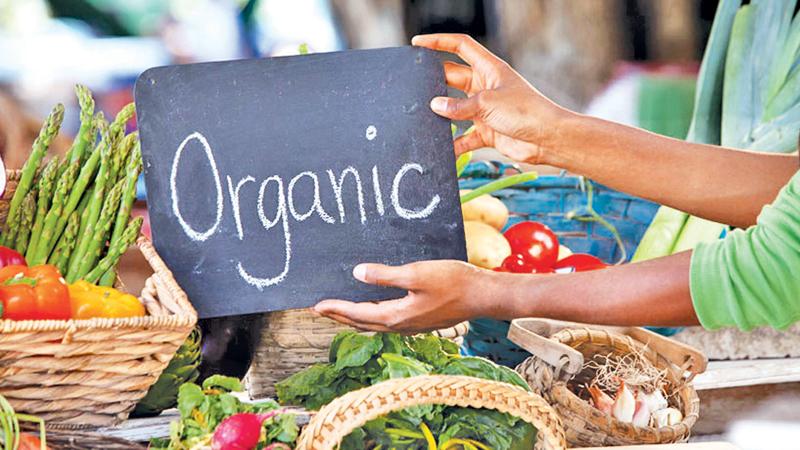
Industry and consumer driven certifications such as IFS, BRC, ISO 22000 or BSCI, SA 8000 and SMETA are vital to get a broader market access to the EU, speakers said at a virtual sourcing conference on ‘Organic Food Products Made in Sri Lanka’ organised by the Delegation of German Industry and Commerce in Sri Lanka last week.
The event was hosted in collaboration with GIZ Sri Lanka, and co-funded by the German Federal Ministry of Economic Cooperation and the European Union.
Speakers said that it is not sufficient to obtain a European-organic certification, but World leading retailers such as Lidl with a turnover in 2020 of 89 billion Euro, the REWE group with a global turnover 55.4 bn Euro and Metro 25.6 bn Euro, but also specialised wholesalers and importers such as Kreyenhop & Kluge, Clama, I.Schroeder KG, Rila Feinkost and Horst Bode Import and Export, covering through their network all major markets of the EU attended the meeting. The major objective of the event was to support Sri Lankan exporters of organic products to obtain broader market access to the EU by providing key information on required certifications and standards, labelling and packaging rules and distribution channels to the EU. During the upcoming days the participants of the virtual business delegation will be individually matched according to their individual specific needs with Sri Lankan exporters of organic products.
Every single B2B-meeting has been thoroughly prepared and will be individually accompanied by my colleagues.
During the preparation of the B2B-meetings the importance of standards and certification became evident. Apart from the legally required certifications in the EU there are specific standards that are required by importers when it comes to quality, food security and sustainability. Market access and future export earnings will depend very much on the ability to meet these requirements and standards. The potential is tremendous.
Today the Organic World Market is about $ 110 billion. The EU with its 27 EU-member states with a population of 450 million is the second largest single market with a continuously growing volume in retail sales of $ 41.4 billion, behind the US. Within the EU, Germany is the largest organic market with a volume almost $ 12 bn and equally the second largest organic market in the global organic country rating.
The organic market recorded a growth rate of 8% in the EU. Within the EU the largest growth rate was recorded in France with 13.4%. During the last decade organic market values have more than doubled.
It is evident that the EU remains a very interesting and continuously growing organic market for Sri Lankan exporters.
During the past years, several market trends have been developed. Besides trends focusing on Health Consciousness, Superfoods and organic, there is a very strong trend with regards to sustainability:
The legal frame in Europe regulating sustainability standards with regards to responsible. business and human rights has been continuously developed.
A European law on sustainable supply chain law is in preparation. In Germany, a law on corporate due diligence in supply chains has been passed by the German Parliament in June 2021.
Sustainability standards are a reality. They are partially politically driven, but they are also more and more consumer and industry driven. Besides the existing official legally binding standards, European importers require more and more consumer and industry driven standards like Fairtrade, BSCI, SA8000 and SMETA”.
Last year the EU became the most important export market for Sri Lankan companies ahead of the US. Almost 1 third of all Sri Lankan exports went to the EU.
In fact, 3.182 bn USD were exported to the EU while 2.507 Bn USD were exported to the US. Last year the EU had a trade
balance deficit with Sri Lanka of Euro 1.178 bn. Within the EU, Germany is the most important market and by country rating the third most relevant export destination for Sri Lankan companies.
Sri Lankan exports to Germany were more than three times higher than German exports to Sri Lanka reaching about Euro 717 million last year.
